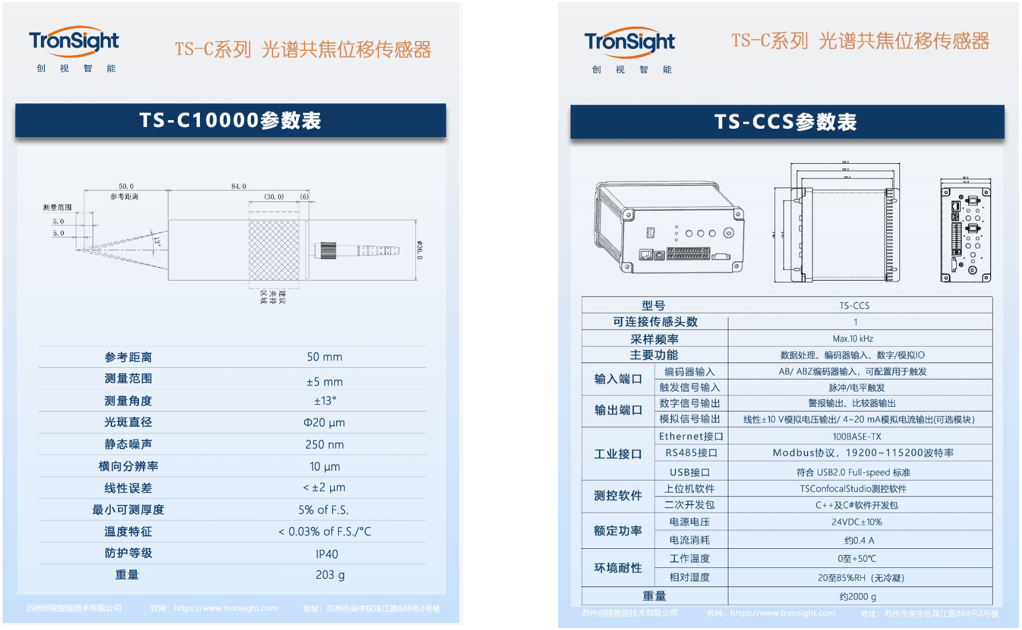【Industry Application】Spectral Confocal Measurement of Motor Vibration Frequency
Nov 21, 2023
Abstract: Spectral confocal measurement technology, due to its high precision, allowing a larger tilt angle for the measured surface, fast measurement speed, real-time performance, low requirements on the condition of the measured surface and unique advantages such as high resolution, has quickly become a popular sensor in industrial measurements, widely used in biomedicine, materials science, semiconductor manufacturing, surface engineering research, precise measurement, 3C electronics fields, etc.
Introduction
The measuring scene uses the TS-C10000 spectral confocal sensing head from Cview Intelligent Technology Co., Ltd. and CCS controller. The TS-C series spectral confocal displacement sensors can achieve a repeatable accuracy of 0.025 µm, ±0.02% of F.S. linearity accuracy, sampling speeds up to 10 kHz, and an angular range of ±65°, making it suitable for surfaces made of mirrors, transparent materials, semi-transparent materials, coatings, rough metal surfaces, multi-layer glass, etc. It supports data transmission interfaces including RS-485, USB, Ethernet, and analog quantities.
1.Motor vibration measurement:
Preparation work: Install the spectral confocal displacement sensor, connect the controller with the computer. Open the data acquisition software, set test parameters such as sample frequency and sampling time, start testing:
Measurement demand: Measure the vibration frequency and amplitude of the tested object (motor)
Test method: Find a point where there is relatively large vibration, measure the vibration frequency and amplitude at this point. To ensure accurate data, we will repeat the measurement three times.

First vibration test results and spectrum analysis:


Second vibration test results and spectrum analysis:


Third vibration test results and spectrum analysis:


Final measurement result analysis:
When using the C10000 to measure motor vibrations, the waveform is close to a sine wave without interference from noise. Through spectrum analysis, maximum vibration amplitudes can be effectively extracted. In all three tests, the amplitude was approximately located around 53 Hz, with values ranging between 0.066 mm, showing good repeatability. We recommend selecting the optical fiber probe TS-C10000.









